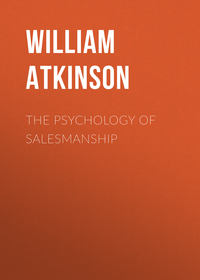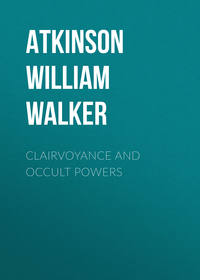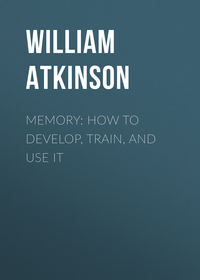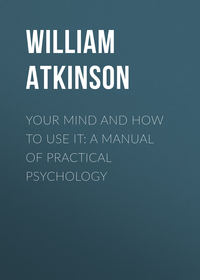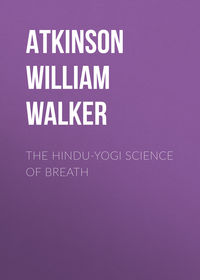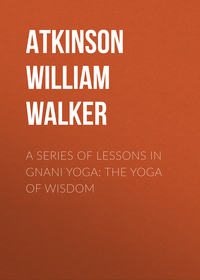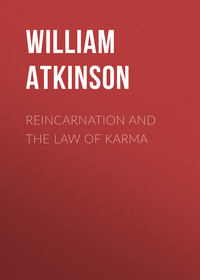 полная версия
полная версияNuggets of the New Thought
The cares of to-morrow indeed! 'Twould be laughable if it were not so pitiful. To-morrow's cares may come, will come, must come, but what of to-morrow's opportunities, to-morrow's strength, to-morrow's chances, circumstances, helpers? Don't you know that the supply of good things does not cease with the close of to-day? Don't you know that in the womb of the future sleep opportunities intended for your use when the time comes? Don't you know that an earnest, confident expectation of the good things to come will cause these good things to grow for your use in the future? Well, it's so; they'll grow and grow and grow, and then when you need them you will find them ripe and ready to pick. Water them with Faith; surround them with the rich soil of Hope; let them receive the full rays of the sun of Love, and the nourishing fruit of Opportunity will be your reward – to-morrow.
Did you ever shiver with dread at the thought of what would happen if the sun should not rise to-morrow? Did you ever doubt that the grass would grow and the trees take on leaves next Spring? Did you ever fear that perhaps the Summer would not come? Oh, no, of course not! These things have always happened and you have sufficient faith to know that they will occur again. Yes, but you have been fearing that opportunities, chances, circumstances, may not be present to-morrow. Oh, ye of little faith do you not know that this is no world of chance? Do you not know that you are working under the operations of a great Law, and that these things are as much amenable to that Law as are the seasons, the crops, the motion of the earth, the planets, this and countless other solar systems, the UNIVERSE!
The Law which regulates the motions of the millions of worlds, and whose jurisdiction extends over Space – that Space the abstract idea of which cannot be grasped by the puny intellect of man of to-day – also takes cognizance of the tiny living organism too small to be seen through our strongest microscope. The sparrow's fall comes under the Law as well as the building of a magnificent series of solar systems. And yet, man fears to-morrow.
Of all living beings, man alone fears to-morrow. Children, lovers and philosophers escape the curse. The first two look forward to it with joy and confidence, having the love that casteth out fear; the philosopher's reason teaches him that which the intuition of the other two has grasped. The child intuitively recognizes that the infinite supply is inexhaustible and naturally expects to-morrow's supply as he does to-morrow's sun. He has faith in the Law, until Fear is suggested into his receptive mind by those who have grown old enough to fear. The child knows that "there are just as good fish in the sea as ever were caught," but the "grown-up" fears that to-day's fish is the last in the sea, and fails to appreciate to-day's haul by reason of his worry about the possible future failure of the fishing industry.
Oh No! I do not believe in just sitting down and folding my hands and waiting for "mine own to come to me." I know that "mine own will come to me," because I am doing well the work that the Law has placed before me to do – that which lies nearest to my hand to-day. I believe in work, good work, honest work, cheerful work, hopeful work, confident work. I believe in the joy of work – the pleasure of creating. And I believe that he who does his best work one day at a time working with faith, hope and confidence in the morrow, with Fear eliminated from his mind and replaced with Courage – I believe, I say, that such a man will never find his cupboard empty, nor will his children want for bread.
And furthermore, I believe that to-morrow is what we make it by our thoughts to-day. I believe that we are sowing thought-seeds to-day, which will grow up over night and bear fruit to-morrow. I believe that "Thought takes form in Action," and that we are, and will be, just what we think ourselves into being. I believe that our minds and bodies are constantly being molded by our thoughts, and that the measure of man's success is determined by the character of his thoughts. And I believe that when man will throw off the incubus of Fear, the frightful vision of the night will vanish, and, opening his eyes, in the place of the monster he will see the fair form and smiling face of a radiant creature, who, bending over him with love-lit eyes, will softly whisper, "I am TO-MORROW."
IN THE DEPTHS OF THE SOUL
Stores of information; rich mines of knowledge; uncut gems and precious metal awaiting the discoverer – Psychic and spiritual faculties – Strange attraction of soul to soul – The Rock of Ages – The Voice of the Soul.
Deep down in the soul are stores of information awaiting to be brought to the surface of consciousness. Rich mines of knowledge are there – uncut gems rest there awaiting the day when they will be uncovered and brought into the bright light of consciousness – rich veins of precious metals are there awaiting in patience the day when some Divine Adventurer will search for them and bring them to light. The human mind is a wonderful storehouse, concealing all sorts of treasures and precious things, only a fraction of which have been discovered so far.
We have faculties not yet recognized by the science of the day – psychic and spiritual faculties – just as real as the recognized faculties, playing an important part in our everyday lives, particularly when we have been made aware of their existence. In many of us these faculties are scarcely recognized, and many of us doubt and deny their very existence. Others have a faint perception of their existence, but do not know how to use them, and get but the slightest benefit from them. Others have awakened to the wonderful faculties which are developing and unfolding within them, and a few have gone so far as to aid in this development of these higher faculties of the mind, and have been almost startled at the results obtained. The Orientals have their ways of development of these faculties, and we Occidentals have ours. Each best serves the purposes of the particular people using it.
As we bring these faculties out of the realm of the super-conscious into the field of consciousness, life takes on an entirely different meaning, and many things heretofore dark are seen plainly and understood. No one can understand the Oneness of things until his spiritual faculties are sufficiently developed to make him conscious of it. Blind belief or reliance upon the words of another will never do for the seeker after Truth that which is accomplished by a single gleam of consciousness resting upon some of the hidden treasures of the soul. One glimpse into the depths of the soul will do more than the reading of thousands of books, the teaching of hundreds of teachers. This glimpse, once had, will never be forgotten. Its reality may be questioned at times – at other times the memory may seem dim and unreliable – but it will return in all its freshness and brightness, and even in the moment of doubt we cannot entirely escape it.
Our real knowledge of the existence of GOD is not obtained from the intellect. We can take up the subject of GOD and reason about it all our life, only to find ourselves, in the end, in a worse muddle than when we started. And yet one single ray of consciousness reaching down into the depths of our inner being will bring to us such a complete certainty of GOD'S existence and being, that nothing afterward will ever shake our faith in the reality and existence of the Supreme Power. We will not understand the nature of his being – his existence – his power – but we will know that he exists, and will feel that peacefulness and infinite trust in him which always come with the glimpse of the Truth. We will not understand any better the many theories of Man regarding GOD and his works; in fact, we will be more apt to turn away, wearied, from Man's discussion of the subject – the attempt of the finite to describe and limit the infinite. But we will know that at the Center of things is to be found that Universal Presence, and we feel that we can safely rest ourselves on his bosom – trust ourselves in his hands. The cares, sorrows and trials of Life seem very small indeed when viewed from the absolute position, although from the relative position this world often seems to be a very hell.
Another glimpse into the recesses of the soul reveals to us the Oneness of things. We see GOD as the great Center of things, and all the Universe as but One. The Oneness of all Life becomes apparent to us and we feel in touch not only with all mankind, but with all life. The petty distinctions of class, race, rank, caste, nationality, language, country fade away and we see all men as brothers. And we feel a kindly feeling and love toward the lesser manifestations of life. Even the rocks and the stones are seen as parts of the Whole and we no longer feel a sense of separateness from any thing. We realize what the Universe is, and in our imagination visit the most distant stars and instinctively know that we would find nothing foreign to us there – all would be but bits of the same thing.
And we begin to understand those strange attractions of soul to soul, instances of which have come to all of us. We realize that it is possible to entertain a feeling of love for every living creature – to every man or woman, the manifestations, of course, varying in degree and kind, according to sex and closeness of soul relation. It makes us more tolerant and causes us to see but ignorance in many things in which we saw but sin before. It makes us feel pity rather than hate. Ah, these little glimpses into the inmost recesses of the soul they teach us many new lessons.
And one of the greatest lessons that we may acquire in this way is the recognition of the eternal life of the soul. We may believe, with greater or less earnestness, in the doctrine of the immortality of the soul, our beliefs and conceptions depending more or less upon the teachings which we have received from early childhood, but until we become conscious of that which lies within us, we are never really certain – we do not know. Many good people will deny this statement, and will say that they have never doubted the life of the soul after death, but see how they act. When death comes into their houses they mourn and cry aloud in their agony, and demand of GOD why he has done this thing. They drape themselves in mourning and mourn and weep as if the loved one had been destroyed and annihilated. All of their actions and conduct go to prove that they have no abiding sense of the reality of the continuance of life beyond the grave. They speak of the dead as if they were lost forever – as if a sponge had been passed over the slate of life and naught remained. How cold and hollow sounds the would-be comforting words of friends and relatives, who assure the mourning ones that the being who has just laid aside the body is "better off now," and that all is "for the best," and all the rest of conventional expressions that we make use of. I tell you that one who has had a glimpse into what lies within him knows so well that he is eternal that he finds it impossible to look upon death in the ordinary way, and if he is not very careful he will be regarded as heartless and unfeeling for the sorrows of others. And he will be regarded as a fool in his views of life by those around him who attend church regularly every Sunday, and who profess a full belief in all its doctrines. If he considers that he himself is his soul, and that he is as much an immortal being now as he ever will be – that his body is but as a garment to cover him, or an instrument through which he manifests himself – if he considers that he is in eternity now just as much as he ever will be; that he cannot be destroyed by Mt. Pelee eruptions or railroad accidents – if, in short, he feels these things so strongly that they have become a part of his real everyday life – why, he is looked upon as "queer" by those who hear these things taught them every Sunday, and who would feel horrified if they were accused of harboring a doubt regarding them. This is one of the things that go to show the difference between "believing" a thing and "being conscious" of it.
Now, don't run away and say that I held that the church-goers have no conception of the reality of the immortality of the soul, for I haven't said any such thing. There are many church-goers who have experienced a full realization of the feeling I mention, and there are many more church-goers who have not. And there are many men and women who scarcely ever enter within the walls of a church who have had this experience, and it means more to them than all the preachments they have ever listened to. It is not a matter of being "in-church" or "out-of-church," it is a matter of spiritual development, that's all. I attend churches of all denominations, and I find all of them good. The service of the Catholic Church appeals to me, and so does the meeting of some old-fashioned Methodist congregation. I do not accept all the doctrines and theories I hear in the various churches, but I manage to get some good out of all. If I have any preference whatever, it is for an old-fashioned Quaker meeting, where, perhaps, not a word is said from beginning to close, but where there is undoubtedly a strong spiritual power manifested. I have even found much good in attending a certain orthodox church, where the venerable preacher, who does not believe in the "higher criticism" or creed revision, often gives us a delightful sermon on the horrors of hell and the state of the damned, including the unbaptized infants. I can listen to a sermon like this with a thrill of delight – a feeling of intense joy which comes to me because I have been given the inward assurance that there exists a GOD who is Love, instead of the hating, wrathful, vengeful creature that the poor preacher tries to make us believe is the Infinite Power – the Universal Presence – the Loving Father. Oh, no, I am not condemning churches – I like them all, and think that each one is doing the best possible work for the particular people who are attracted to it. I have listened to the exercises of the Salvation Army, and have seen much good in it. How many of you New Thought people, or you high-toned church members, would make half the sacrifices for what you consider Truth that the Salvation Army soldier or the Hallelujah lassie make every day of their lives? Stop a moment before you laugh at them. Some of these people have more spirituality in their little finger than many of us have in our whole bodies.
There are times when we feel disturbed and full of unrest. We seek to use our intellects and solve all the problems of life. We fret and chafe under the restrictions which have been placed upon us. We wish to KNOW all things. We reason this way and that way, follow up every lane, alley and street in the city of Thought, but, alas, we find not that which we seek. And in our search we are apt to forget that we have within us an assurance that all is well with the world, and with us. We rebel against the leadings of the Spirit – against the knowledge that has come from the inner self – and we want to get our knowledge over the old channels – by means of the Intellect. Well, at such times we storm and fume and fret, and complain at our inability to solve the problem. We set up ideas only to tear them down again. We assume and then abandon one position after another, until there is nothing left. And the end of all the intellectual debauch is to say finally, "I do not know." And then, after the struggle is over, we see, just as plainly as ever before, the glimpse of Truth that has come to us from within – we hear the words of the soul – we have the same old consciousness. We say to ourselves, "I may not get this thing intellectually, but I KNOW it is true. I cannot doubt the voice of the Soul."
This knowledge which comes from within is like the rock against which beat the storms of the sea – against which dash the waves which completely cover it and which hide it from sight, until it seems that it has disappeared forever from view, carried away by the attacking waves. The lightning flashes, the thunder rolls, the fury of the tempest seems concentrated against this rock, and the demon of the storm seems intent upon destroying every particle of it – of tearing it to little bits with which to strew the shores. All is darkness – all is blackness – all is fury, raging and terror. After hours, the storm subsides, and then later morning comes, and the first rays of the rising sun kiss lovingly the rock which has stood the fury of the storm, and has emerged unhurt, a witness to its superiority to the elements.
Storm away, ye who would destroy this rock – dash your waves of Doubt, Logic, Criticism, Unbelief, Dogma, Theory, against this rock of the Spirit. Exert yourself to the utmost – expend all the force that is within you – do your best – do your worst. Tear and twist, pull and wrench, beat and pound, and what have you accomplished? After the storm has passed away – after the clouds have dispersed – when the sky again is blue and the sun again is shining – the rock still stands, undisturbed, unchanged, unshaken. And stand it will for ages and ages. And Man shall begin to know of the stability and firmness of this rock. He will begin to realize just what it means to him, and he will know that while the waves that beat upon it are good and needful, and not to be despised, that only upon the rock can he safely build.
Do not despise the intellect and its teachings, but know that ye have within ye another source of knowledge – that ye have spiritual faculties which are developing and which you can use. And trust the work of these faculties – listen to the voice of the Soul.
"FORGET IT."
Why worry about the past? – Hugging old sorrows to your bosom – What to do with them – Don't poison your life – Pain brings experience – Learning your lesson – How to get rid of a gloomy thought – Throw it away – Forget it.
One can often get some useful lesson from the slang and current phrases of the day. There is something particularly attractive to me about slang, and the pat phrases that are passed along from one to another on the streets. Many of these phrases condense in a few words certain practical truths that one could use as a basis for a sermon, an essay, or even a book. They are the practical experiences of the people crystallized in a catchy phrase. The phrase which I hear so frequently on the street just now, "Forget it," seems to me to contain much practical common sense, and if people would put it into practice there would be many more brighter faces – many more lighter hearts. What's the use, anyhow, of carrying around a long face or a heavy heart, just because away back in the past something "went wrong" with us, or even if we "went wrong" ourselves (and most of us have – I have, I know)? What's the use? Forget it!
Of course you will not forget the experiences of the past, and you do not want to. That's one of the things we are living for – gaining experience. When we have once really learned a thing through experience, we never forget it – it is a part of us. But why bother about the memory of the pain, the mortification, the "slip-up," the heartache, the wounded feelings, the misplaced confidence, the thing done in the wrong way, the chance you let slip by, the folly, the sin, the misery, the "might-have-beens," and all the rest. Oh what's the use? Forget it I say, forget it.
If one is to worry about all the things that went wrong – all the things that didn't come right – in the past; if he has to take out each memory every day, and after carefully dusting it off, fondle and caress it, and hug it close to his bosom; if he has to raise up these ghosts from the past – these phantoms of long ago – these musty, moth-eaten things – why he will have no time for the affairs of to-day. He will lose all the joy of the now – all the pleasure of life of the moment – all the interest in the things of to-day. Oh, dear, dear, what's the use? Forget it – forget it.
Some people are not happy unless they have some old faded sorrow hugged up close to their bosoms, and they feel guilty if they happen to smile and forget the old thing for even a moment. Oh, how they do gloat over their own revamped unhappiness – how they enjoy the relieving of the pains and sorrows, mistakes and ignorance of years gone by. How they love to hold the fox to their sides and let it eat out their heart. These people are really happy in the unhappiness, and life would not be worth living if they were deprived of their pet sorrows. Of course, if these people are really happy because they are unhappy, I have no objection. Every man or woman has the right to pursue happiness in his or her own way, and I suppose that that is as good a way as any other, and I should not find fault if somebody else's way is different from mine. But doesn't it seem like a pity to see people wasting their time, energy, thoughts and life on these old sorrows? If they must think of the past, why not think of the bright things that came into their lives, instead of the dark ones? Think of the moments of happiness, not of the moments of sorrow. Don't make a tomb of your mind. Don't let that particular painful experience poison your present life. Don't do it – don't do it. What's the use? Forget it.
Every bit of pain that has happened you has brought its experience to you – you are better, wiser and broader for it. Look at it in that way, and you will cease to mourn and wail and wring your hands over the fact that in the past you "have done those things which you ought not to have done, and have left undone those things which you ought to have done." Nonsense! You have gained the experience and know better now. If you were placed back in the same old position, and lacked the experience that you have gained by just such things, you would do the same old thing over again, and in the same old way. You couldn't help it, because you would be the same old person. What you would like to do would be to be placed back in the same position, and face the same old temptation or problem, but you would want to take with you the experience you have gained by your former mistake. You want the cake and the penny at the same time. You want the experience without the pain. Oh, yes, you do, now, that's just what you want – I've been through it myself, and know all about it. You've gained the experience, be satisfied. Some day you'll need that experience, and will be glad you have it, and will see that it was worth all you've paid for it. No, you don't see it that way? Well, maybe you haven't had enough of it – haven't learned your lesson yet. If that is the case, some of these days the law will drop you back into the pot, until you're well done. The law is not satisfied with underdone people. Oh, you're making a big mistake. Forget it – forget it.
The people who carry these old things around with them generally get themselves into the mental attitude that draws other things of the same sort to them. Misery likes company, and a miserable thought also likes companionship, and almost always manages to attract some other miserable thing to it, to keep it from being lonesome. The only way to get rid of a thought of this kind is to – forget it.
Now if you have some pet thing that is gnawing out your vitals – is corroding your heart – is poisoning your mind – take it out and look at it for the last time. Give it a last long lingering gaze. Kiss it good-bye. Weep over it if you like, for this is the last you will see of it. Then throw open the window of your mind and pitch it out into the outer darkness.
FORGET IT!
"THE KINDERGARTEN OF GOD."
Life a great school – Man a child learning his lesson – Preparing for higher grades – The game-task – What it all means – Things as they are – The rules wise and good – Each task means something – Greeting the Kindergartner.
I see Life as a great school – Man as a tiny child, learning his little lessons, performing his little tasks, playing his little games, enjoying his little pleasures, suffering his little pains, disappointments, trials and sorrows.
I feel that we are in but the kindergarten stage of existence, learning the first lessons of Life – fitting ourselves for the grander, broader, fuller life in store for us. And I feel that this little kindergarten experience will continue until we have learned its lessons well – have firmly grasped the principles designed for our baby minds. And I feel that when we have proven our ability to weave our little mats – build our little blocks – draw our little pictures – mold our little clay forms – sing our little songs – then, and not until then, will we pass into a higher grade, where we will spell out the lines of the Primer of Life, and acquire the elementary principles of Cosmic Mathematics. And I feel that each little lesson must be learned, thoroughly, before the next step is taken. And I feel that every one of us must perform his own task – must memorize his own lesson – before he can gain the experience – can profit by the knowledge acquired in the performance of the task. We may be inspired by some brighter pupil – be encouraged by the loving sympathy of some fellow-scholar, but the task is ours to perform, sooner or later – and ours is the joy of accomplishment.


